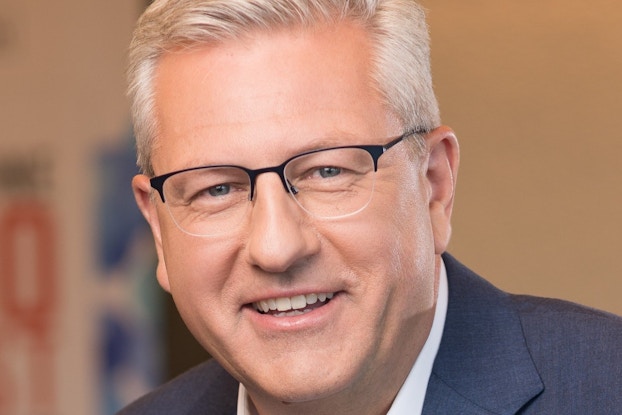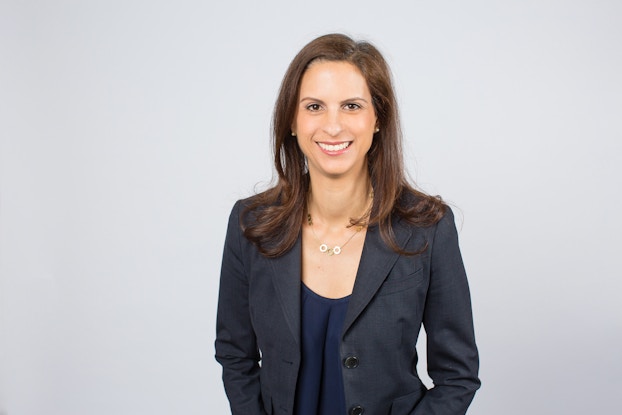
Noom, Hilton, and American Express are tapping 3 post-pandemic trends for growth:
- Wellness and self-care became a widespread preoccupation amid the global health crisis, fueling the growth of telehealth apps like Noom, which is adding more holistic health content and services to enhance its core weight-loss program.
- As remote work shifts from a pandemic trend to a new normal, work-from-anywhere-geared consumers are increasingly adding vacation days onto their business trips—and Hilton is building a new hotel designed just for this workforce.
- Small business formations surged amid the pandemic and continue to exceed pre-pandemic levels, with American Express pursuing that SMB market opportunity.
Three years after COVID disrupted the world order as we knew it, its impact on businesses’ go-to-market strategies rolls on.
A trio of very different companies are leaning into the pandemic-rejiggered economy to catalyze growth: American Express is tapping into the surge in post-pandemic small business formations with its new Business Blueprint hub; weight-loss app Noom is enhancing its platform to deliver users holistic health solutions amid the wellness boom; and Hilton is launching its first-ever economy hotel, designed with the nation’s hybrid workforce in mind, executives from the brands told CO—.

Interested in a small business membership?
Find out how the U.S. Chamber of Commerce can help your company grow and thrive in today's rapidly-evolving business environment. Connect with our team to learn how a small business membership can benefit your bottom line and help you achieve your goals.
The “through-line” of their strategies reflects the intentionalism trend, said Allyson Rees, Senior Strategist, Insight, with trend forecasting firm WGSN.
“For many years we talked about mindfulness,” she said. Now post-pandemic consumers “want to live with intent,” which is reflected in how they shop and spend their time. “They want to make the most of everyday, focusing on and manifesting the things that count — prioritizing self-care, health, relationships, and work-life balance.”
Amex’s new Blueprint platform, for one, courts the boom in small business owners who “want to have control of their own destiny and are seeing their career as a form of self-fulfilment rather than just a 9-to-5 job,” Rees told CO—. “So many were burned and laid off by the pandemic, and now there’s a second wave of tech layoffs.”
Meanwhile, Hilton’s courtship of hybrid workers targets the growing ranks of employees who are tagging on leisure days to their business trips, she said.
And Noom’s holistic approach to weight management points to “manifesting wellness.” The digital weight loss app is taking a cue from consumers, who are looking at health and weight loss as more of “a mind-body connection,” Rees said. “Telehealth became so much more normalized during the pandemic, and we’re seeing more of this concept of care teams that go beyond just one’s doctor,” she said. “A lot of companies are now focused on whole-person care.”
Nearly two decades ago, “the law of attraction,” the notion that positive thoughts summon success and happiness, sparked the public’s imagination thanks to the Oprah-championed book “The Secret,” noted Rees. Now, the concept of bringing aspirational thoughts into being by “manifesting intention” is taking similar hold, she said. Indeed, “The hashtag #ManifestingIntention is racking up billions of views on TikTok.”

Noom: ‘We are doing more to integrate mind and body’ into the weight-loss program
Andreas Michaelides, Chief of Psychology
Enhancing consumers’ well-being by integrating more psychology-driven tools into the Noom experience is a big growth opportunity for the weight-loss app, from the content it serves to the product features that dictate how the app works.
Delivering customers, or “Noomers,” holistic health solutions is integral to that push, and “is a big theme this year,” Andreas Michaelides, Chief of Psychology for Noom, told CO—. “We are doing more to integrate mind and body [into the weight loss program],” he said. “Not only do customers yield better results from holistic solutions, but the literature says siloed weight loss experiences are inferior to holistic experiences.”
For Noom, that means staying in sync with the non-linear shifts that define users’ weight-loss journeys. The idea is to “create a program that changes with the contours of our lives from week to week,” he said.
“Imagine you start a program with a weight loss goal in mind, but life gets in the way and it’s hard to focus on that right now, so maybe you want to focus on stress management and sleep,” Michaelides said. “A good program can shift your focus to the things you’re currently grappling with.”
“For many years we talked about mindfulness,” she said. Now post-pandemic consumers “want to live with intent,” which is reflected in how they shop and spend their time. “They want to make the most of everyday, focusing on and manifesting the things that count — prioritizing self-care, health, relationships, and work-life balance.”
Allyson Rees, Senior Strategist, Insight, WGSN
As a business strategy, Noom’s expanding weight-management solutions mark a play for a bigger slice of the multitrillion-dollar global wellness industry. “It allows us to expand the [target] market quite a bit,” he said. The strategy also differentiates Noom from other digital health apps that offer either weight loss or mental health solutions, but not both, he said.
To that end, Noom recently launched live, one-on-one video sessions with behavior change coaches as a premium add-on to a Noom subscription. “These Noom coaches have undergone additional training in an evidence-based coaching methodology intended to help people discover their underlying values and motivations for making sustainable, healthy behavior changes,” Michaelides said. The idea is to help Noomers forge stronger relationships with their coaches and stay engaged in the program longer.
What’s more, Noom’s behavioral science team partnered closely with its content and product development teams to offer new features like the Mental Wellness Course Pack, an add-on purchase that incorporates mental wellness guidance throughout the program.
All told, “We hope that these changes will offer more inclusive and holistic support for Noomers at each stage of their wellness journey and continue to build trust in our products.” Michaelides said.

Hilton: Courting post-pandemic consumers via wellness and a hybrid-work-geared hotel concept
Matt Schuyler, Chief Brand Officer
Hilton’s big growth opportunity plugs into meeting the demands of a changed hospitality landscape, Matt Schuyler, Chief Brand Officer for Hilton, told CO—. “We’re adjusting our products to post-pandemic travel.”
That in part means attending to guests’ heightened wellness demands with healthier food options and Peloton bikes in all Hilton-branded U.S. hotels, just as it readies an entirely new hotel concept in the hybrid work economy.
Spark, Hilton’s first economy brand, is slated to debut later this year. After studying the hospitality market post-pandemic, Hilton spotted a void in the hotel space for the value-seeking guest with a travel bug and a more flexible work schedule that now allows them to indulge it.
As Schuyler sees it, the concept leans into the underserved, pent-up demand for affordable travel and the 80% of consumers who regularly book economy stays — and “hybrid workers are a big part of that,” he said.
Amid the staying power of remote work: 56% of business travelers extended their business trips for leisure in the first quarter of 2023, according to Skift Research’s U.S. Travel Tracker report.
With Spark, Schuyler said, Hilton eschews the dated “dark wood, carpets and drapery”-laden look associated with budget hotels in favor of a bright, airy design aesthetic whereby rooms come equipped with workstations; hotel common areas that are decked out with power stands where travelers/workers can fire up their laptops and phones, comfort seating, and even picnic tables; and dining menus that are designed with healthy on-the-go food options.

American Express Blueprint: Angling to be a ‘one-stop-shop’ for SMBs’ financial needs
Gina Taylor, Executive Vice President and General Manager of Business Blueprint and Banking
American Express wants to be a one-stop-shop for SMBs’ financial needs via its new Blueprint Business hub. The free platform offers any small business, including non-Amex customers, personalized cash flow insights designed to help them make better-informed financial decisions. Blueprint enables businesses to link all their financial accounts and applications — payroll, checking accounts, credit cards, and more — into a single dashboard.
It reflects Amex’s push to broaden its image as more than just a credit card company as it makes a bold bid for the 33 million small businesses in the U.S.— a community that surged post-pandemic, Gina Taylor, Executive Vice President and General Manager of Business Blueprint and Banking, told CO—.
She’s not wrong: Last year the number of applications to form new U.S. businesses spiked 28% from 2019, according to the Economic Innovation Group, citing U.S. Census data.
“As we came out of the pandemic, we thought to serve an important market segment that was underserved,” Taylor said, as “more small businesses were opening than closing.”
With Blueprint, the idea is to entrench SMBs into Amex’s “proprietary ecosystem.”
Now that Amex offers a full suite of financial solutions with Blueprint, it aims “to gain primacy as one of the first financial institutions [SMBs] go to” for actionable data insights on their business and to manage their cash flow, Taylor said.
Since launching Blueprint on January 31, Amex has tracked higher signup rates for its core business products.
The company will sweeten Blueprint’s offerings for SMBs that are Amex members via its rewards programs.
“We’re excited about connecting American Express’ products together in a way that makes sense,” Taylor said. “Hopefully that’s our secret sauce.”
CO— aims to bring you inspiration from leading respected experts. However, before making any business decision, you should consult a professional who can advise you based on your individual situation.
CO—is committed to helping you start, run and grow your small business. Learn more about the benefits of small business membership in the U.S. Chamber of Commerce, here.







